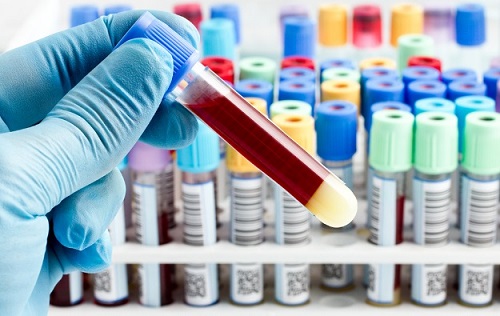Private Hospitals in a Certain Country Faking Lab Diagnostics to Get Medical Tourists to Undergo More Procedures to Increase Billings!
James Josh Fact checked by:TMN Feb 21, 2025 1 month, 2 weeks, 6 days, 4 hours, 9 minutes ago
Medical tourism has burgeoned into a global industry, with patients traversing continents seeking affordable and advanced healthcare services. However, beneath the veneer of private hospitals boasting the state-of-the-art facilities and renowned specialists lies a disconcerting reality: some private hospitals in a prominent medical tourism destination are engaging in unethical practices to inflate profits. This
Medical Tourism News report delves into the alarming trend of private hospitals manipulating diagnostic results to coerce medical tourists into unnecessary procedures, thereby escalating their financial gain.
 Private Hospitals in a Certain Country Faking Lab Diagnostics to Get Medical Tourists to
Private Hospitals in a Certain Country Faking Lab Diagnostics to Get Medical Tourists to
Undergo More Procedures to Increase Billings!
Manipulation of Diagnostic Results
Recent undisclosed reports have unveiled that certain internationally acclaimed hospitals in the capital of a certain country celebrated for medical tourism but also famous for its morally decadent nightlife and sex trade along with corrupted officials are instructing their laboratories to alter or fabricate test outcomes. (We are not allowed to name the country or capital due to legal issues!) The objective is to persuade patients to consent to additional, often superfluous and costly diagnostic tests and medical imaging. These unwarranted procedures not only subject patients to potential health risks but also substantially increase their medical expenses. These patient are also referred to other specialists within the hospital and are also charged for these consultations
In some instances, patients are deceitfully informed that their initial blood tests indicate potential cancers or other severe health risks or even certain infections. This fearmongering prompts them to undergo extensive and costly diagnostic processes, including referrals to various specialists within the same hospital network. Alarmingly, after incurring significant expenses, many patients discover that no abnormalities are present. In certain cases, individuals are even prescribed expensive treatment regimens or directed to wellness centers offering dubious therapies not recognized by mainstream medicine, such as unnecessary intravenous antioxidant infusions.
This malpractice although has been brought to certain bodies overseeing hospitals and doctors and even to the its relevant ministries, nothing has been done due to high levels of corruption in that country and the fact that the entities overseeing the private hospitals and doctors are all run mafialike along with many of the key position holders in these organizations themselves committing a lot of wrong doings!
In other cases, involving private hospitals in that same country, there has been also reports of neonatal care fraud involving manipulating records and prolonging hospital stays of newborns in neonatal intensive care units.
There are also a number of reports involving the same country of scams in the cosmetic surgery sector. Patients are often lured by the promise of affordable procedures, only to encounter substandard care and unqualified practitioners.
There have been reports of "gho
st surgeries," where the promised surgeon is replaced by an unqualified individual without the patient's knowledge, leading to botched procedures and severe complications. This deceptive practice not only endangers patients' health but also undermines the credibility of the medical tourism industry.
The Underlying Motivations
The primary driver behind these unethical practices is financial gain. Private hospitals, operating as for-profit entities, are incentivized to maximize revenue. By manipulating diagnostic results, they can justify additional tests, procedures, and specialist consultations, all of which contribute to inflated billing. This exploitation is particularly prevalent in medical tourism hotspots, where foreign patients may lack the local knowledge or resources to seek second opinions, making them more susceptible to such deceit.
Protecting Patients: The Need for Vigilance
To safeguard against these exploitative practices, patients are strongly advised to seek second opinions or have a second round of these initial tests conducted at independent laboratories before consenting to extensive procedures. This due diligence can help verify the necessity of recommended treatments and prevent unnecessary medical interventions.
It is imperative for regulatory bodies to enforce stringent oversight of private healthcare institutions. Implementing standardized protocols, conducting regular audits, and establishing transparent reporting mechanisms can deter hospitals from engaging in fraudulent activities. Additionally, fostering international collaborations can aid in monitoring and addressing malpractice in medical tourism, ensuring that patients receive ethical and competent care regardless of their chosen destination.
Conclusion
While medical tourism offers numerous benefits, including access to advanced medical treatments and cost savings, it also presents potential risks. The unethical practices of certain private hospitals, such as faking lab diagnostics to increase billings, highlight the necessity for patient vigilance and robust regulatory frameworks. By staying informed and cautious, patients can protect themselves from exploitation and ensure that their medical journeys are both safe and beneficial.
For the latest
Medical Tourism News, keep on logging to Thailand Medical News.
Read Also:
https://www.thailandmedical.news/news/the-top-five-hospitals-in-bangkok,-thailand-2023-comprehensive-patient-care-and-medical-excellence
https://www.thailandmedical.news/news/foreign-patients-coming-to-thailand-warned-about-using-online-medical-tourism-agencies-and-brokers
